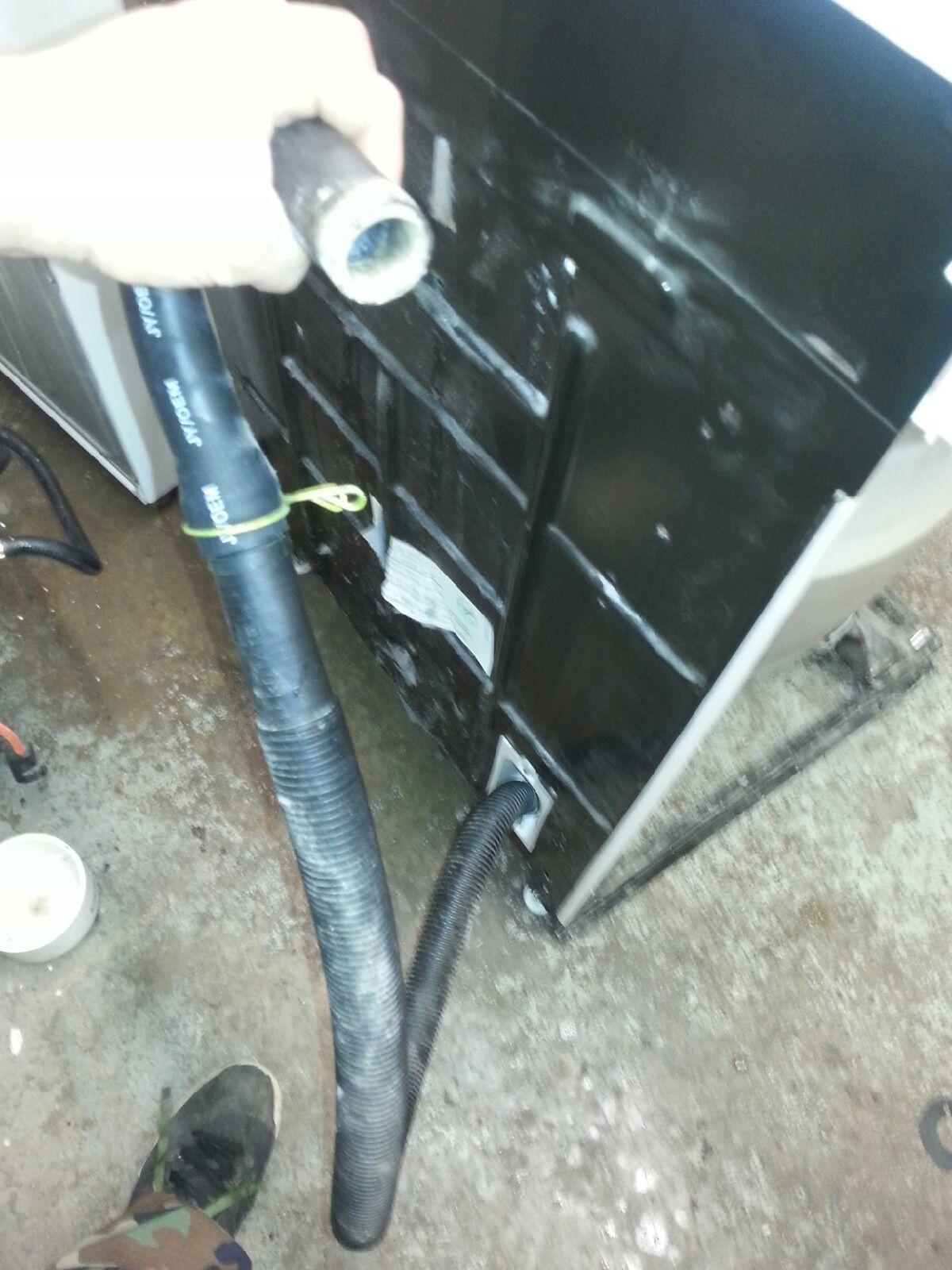Your Appliances and the Arctic Vortex
Your Home appliances and the arctic “vortex”
After the cold spell that hit Indianapolis a few weeks ago I had several people ask me what they should have done to help protect their appliances during the cold months and more particular when the outside air gets below 10 degrees. I never thought I would be in a position to offer helpful advice to the masses, but I offer a unique perspective on appliances and how they function in all weather types. I own a used appliance store, Big Jon’s Used Appliances, on the west side of Indianapolis and the following information is a combination of life experiences from my technicians who have decades of experience with appliances. The appliances that are most vulnerable to the cold weather are washers that are in basements, garages, or face outside walls and refrigerators that are in garages (AKA: beer refrigerators.)
Washers.:
Washing machines are the most problematic during cold months because they involve the one thing that will cause damage to anything; water. There are hoses that fill the washer with water, there are pumps that pump the water out, and even after your washer has spun all the water from your clothes, there is always water left in the bottom of the tub. So, how to prepare:
-
The first thing to do is protect the water lines coming into the washer. Similar to an outside garden hose faucet, if the water starts to freeze inside the rubber hoses, the ice will creep into the plastic water valve that regulates the water intake. If this happens, the ice
will expand and cause the plastic to break. You might not even know the unit is broke until it warms up and you find yourself with water all over your floor. We recommend disconnecting the water lines from the wall during times of extreme cold and only connect them when doing a load of laundry. Another alternative is to buy pipe insulation and wrap the hoses (all the way to the plastic intake valve see photo) to prevent freezing.

2. The second thing to do is to protect the water pump from freezing. Plastic like the water inlet valves, the water pump always has water in it and if frozen, will cause your washer to not spin, drain, and will eventually flood your home. The best thing we have found is to put a high temperature fluid such as windshield wiper fluid into the drain hose in the back of the washer (see photo). Simply put about ½ gallon of pink wiper fluid (usually good for -30 degrees and not as corrosive as antifreeze) in the top of the hose and the fluid will go back into the washer and mix with the water already in the pump and should prevent freezing. You can also pour the fluid into your washer tub (where you normally put clothes) and the same objective is met, but you will have to run an empty cycle afterwards to wash out the fluid so it doesn’t get on your clothes. By putting the water down the drain hose, it keeps the tub of your washer clean and clothes safe!
Refrigerators
I get this question a lot; “which refrigerator is best for my garage?” The answer is usually an older model that does not have digital thermostats or controls. What happens is refrigerators detect the outside air, and if too cold, will shut down the compressor early. An older model is better because it runs on mechanical timers/thermostats, but when the outside air gets too cold, it will not work properly either. The insulation inside the refrigerator is only so thick so once the cold air from the outside penetrates the walls, the refrigerator is ‘tricked’ into thinking it’s at the right temperature and will turn off. I see this all the time and when people call me for service calls I tell them, just wait a few days unit the temperature raises a bit and it will start working again. Almost 100% of the time this is the solution. To prevent your unit from being ‘tricked’ into shutting down early, try these simple tricks. They might help keep your goodies cold.
- Do something to help keep the outside of the refrigerator warmer. This could mean putting a space heater in the garage (do not leave on unattended), putting a large blanket over the refrigerator (just make sure not to drape to the ground. Refrigerators need to bring air in the bottom to work properly), or just take your food out and put it in coolers during the extreme cold periods.
- If you have an ice maker, disconnect it from the wall similar to what you would do for a washing machine. This will prevent the rubber hose from freezing and causing a mess of water once things warm up.
- Another method is to turn your unit up to the highest setting. Its sounds reverse of the intended goal, but if your refrigerator thinks it’s supposed to be colder, it will not shut down early.
At some point, you have to put your hands in the air and surrender. The air expected for Indianapolis next week is -16 degrees and there’s not much a refrigerator can do. Just prepare for it and make sure you have a cooler to store your food in case your unit shuts down. I hope this tad bit of info helps during the cold winter months and remember, when you need a quality used appliance with a warranty, come see Big Jon’s Used Appliances!


 Subscribe
Subscribe